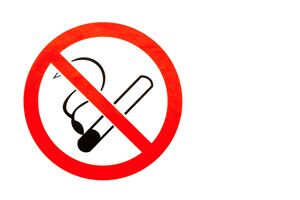János Lázár, the Hungarian prime ministerʼs commissioner for protecting non-smokers, has said he will propose a complete ban on buying tobacco products for anyone born in Hungary after January 1, 2020, according to a story in The Budapest Business Journal citing the Hungarian news agency MTI.
Lázár, who headed the Prime Ministerʼs Office during the previous term of the governing Fidesz-KDNP alliance, was speaking at the Tobacco Hungary conference in Siófok.
He said Hungaryʼs basic law could be modified if necessary.
The absolute ban would aim at Hungary becoming “the first smoke-free country in the world,” he added.
In the meantime, the commissioner said he would propose banning smoking in vehicles and giving condominium communities greater freedom in restricting smoking.
However, Hungaryʼs Government Information Center (KTK) told MTI that the cabinet had not discussed the ban as Lázár had not officially submitted any such proposal.
Tag: hungary

'Absolute ban' proposed

Diplomatic smoke signals
Hungary’s Minister of Foreign Affairs and Trade Peter Szijjarto has imposed a tobacco-smoking ban on the ministry’s properties and on those of Hungarian embassies around the world, according to a Xinhua News Agency story citing an ‘official’ speaking in Budapest on Saturday.
‘Smoking is henceforth prohibited in all of the locals of the Ministry of Foreign Affairs and Trade,’ the Hungarian official journal reportedly announced. ‘The ban concerns all of the real estates falling under the management of the ministry, may it be owned or rented, in Hungary or abroad, such as embassies.’
The new measure bans also the designated, enclosed smoking areas, that have been in use up to now. Smokers will be allowed to smoke only outside, on the streets.
The directive does not stipulate how often employees can break from their work to smoke a cigarette.
Few fines for smokers
A Hungarian law banning tobacco smoking at public transport stops is being seen as a failure, according to a story in the Budapest Business Journal citing a Magyar Idők report.
In five years, fewer than 500 fines have been imposed for breaking this law.
The law, passed in 2012, bans smoking at public transport bus and tram stops, in pedestrian underpasses and on train platforms.
But this had not seemed to have driven smokers away, mostly because there were not enough personnel in public administration to enforce the law.
In 2013, 3,150 checks were carried out and 43 fines imposed; in 2014, 2,288 checks were carried out and 102 fines imposed; in 2015, 946 checks were carried out and 94 fines imposed; in 2016, 8,233 checks were carried out and 140 fines imposed; and last year, 754 checks were carried out and 111 fines imposed.New tender for tobacconists in Hungary
Hungary’s national tobacco company has put out a new tender for tobacconists who were not granted a concession in a recent bid, a government official said on Tuesday.
Thanks to the new tender, tobacconists who would otherwise be obliged to give up their business as of June 30 will be given an opportunity to try again, state secretary at the Development Ministry Janos Fonagy said in parliament on Tuesday in reply to a question by the radical nationalist Jobbik party, according to a story published on the politics.hu website.
Parties of the opposition have sharply criticised the government for the earlier tobacco tender, insisting that members of the ruling Fidesz party influenced the tender process.
Legislation approved last September established a state monopoly on the retail sale of tobacco products from July 1, 2013.
Ousted retailers could be compensated
The Hungarian government is considering what it should do to compensate tobacco-product retailers who missed out when tobacco retail licenses were recently put out to tender, according to an All Hungary Media Group story (AHMG).
Legislation passed in September last year provided for the establishment of a state monopoly of the retail sale of tobacco products from July 1, 2013. The process, overseen by the National Tobacco Trade Non-profit (NTTN) organization, has involved putting out for tender a limited number of tobacco retail concessions.
Prime Minister Viktor Orban apparently told public radio Kossuth the government was working to ensure that people whose livelihoods depended on selling tobacco products, but who had failed in their bids for licenses, stayed in business.
And ruling Fidesz party group leader Antal Rogan said he supported the idea of compensation.
But asked whether plans were afoot to ban family members of local council officials from getting licenses, Rogan said such a move would create more problems than it would solve.
Meanwhile, NTTN has refused a socialist MP’s request for access to documents containing bids submitted for the recent tenders.
The company rejected Csaba Toth’s request to view the bids, arguing that even though NTTN was publicly owned, it was not a state agency and so it did not have to disclose such information.
Toth said he would appeal to the National Development Ministry.
Opposition parties have sharply criticized the government for the tobacco tender, alleging that Fidesz party members had influenced the process.
Earlier this year, the NTTN was forced to announce a second tender in 1,417 communities from which no applications had been received during the initial tender.
Hungary moves from open market to monopoly to zeropoly
Smokers in some Hungarian villages will not have local access to cigarettes after a new law allowing only state-licensed tobacconists to sell cigarettes comes into effect in May, according to an MTI-EcoNews story quoting the opposition Socialist lawmaker, Csaba Toth.
As was reported here on April 3, the country’s parliament adopted legislation in September last year for the establishment of a state monopoly of the retail sale of tobacco products on July 1, 2013.
The National Tobacco Trade Non-profit, which is overseeing the establishment of the monopoly, said that 15,633 applications for the retail sale of tobacco had been submitted by the February 22 deadline stipulated in the initial tender.
No applications were submitted in the case of 1,417 villages, however; so new tenders have been invited.
But since the winners of the new round of tenders would be announced only on April 23, said Toth, there would not be enough time for the shops to open on May 1, the deadline after which only licensed tobacconists may sell cigarettes.
This would encourage black market trading and result in a drop in excise tax revenues, he added.



